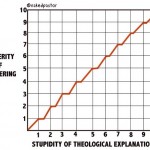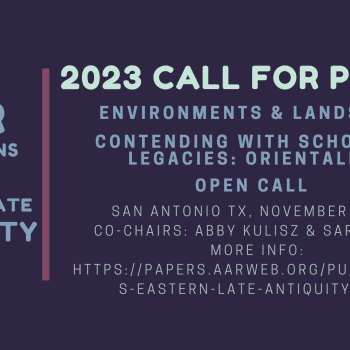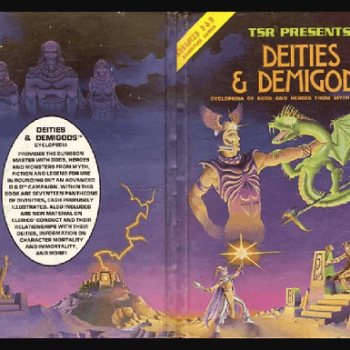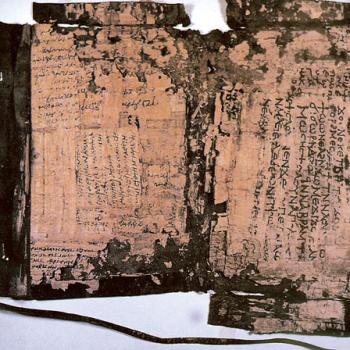I’m really excited about the fact that the major conference in the study of popular culture will be held here in Indianapolis in 2018. It is one that I have long wanted to attend, but given my diverse research and teaching interests (Biblical studies, science fiction, the Mandaeans, music, gaming, and more), I can’t get to every conference that would be of interest.
Below is the call for papers for the program unit about games (HT RelCFP). I have developed an academically-useful game (if you haven’t read it yet, take a look at Jared Calaway’s blog post about playing Canon with his class), but haven’t done that much with the academic study of games in general, and so I should definitely try to make it to some of these sessions.
Game Studies Area: 2018 PCA/ACA National Conference.
deadline for submissions:October 1, 2017full name / name of organization:Game Studies Area of PCA/ACAcontact email:
Game Studies Area: 2018 PCA/ACA National Conference.
The Game Studies area of the National Popular Culture Association and the American Culture Association Conference invites proposals for papers and panels on games and game studies for the Popular Culture Association/American Culture Association National Conference to be held Wednesday, March 28 through Friday, March 31, 2018 at the J.W. Marriott in Indianapolis, Indiana.
The database for proposal submissions opens July 1.
Below, please find:
I. Topics of Interest
II. Suggestions for First Time Submitters
III. Submission Process
IV. Information about the Conference
V. Contact Information
———————————————————————-
I. Topics of Interest
The organizers seek proposals and papers covering all aspects of gaming, gaming culture and game studies. Proposals can address any game medium (computer, social, console, tabletop, etc) and all theoretical and methodological approaches are welcome.
Possible topics include but are not limited to:
— new game mediums and platforms
— representation or performance of race, class, gender and sexuality in games
— gaming culture, game specific cultures, and multicultural and cross-cultural issues
— game development, design, authorship and other industry issues
— game advertising, reviews, packaging, promotion, integrated marketing and other commercial concerns
— political and legal entailments such as regulation, censorship, intellectual property
— ludology, textual criticism, media ecology, narratology, etc as paradigms for games studies
— player generated content in MUDs and MMORPGs, Mods, maps and machinima
— game genres, platforms, consoles, console wars and connections to other media
— serious games for education, business, healthcare, (military) training, etc
— space and place in games, play spaces, virtual/physical communities, mobile gaming and localization
— digital literacy, discourse practices, social norms and norming, the politics of play
— public discourse/controversy over violence, militarism, sex, criminality, racism, etc in games
— game pedagogy and classroom practices, gamification, learning as play
II. Suggestions for First Time Submitters
We know that many people interested in presenting in Game Studies are new to the field, or come from departments without much institutional support for it. We welcome you! You’ll find that our area is a welcoming and collegial community. Although when you first come to study games, it might seem like there’s not a lot of scholarship on the topic, there is actually a robust body of work. As with any field, we encourage you to try to familiarize yourself with some of the major threads of that discussion so that you don’t find yourself rehashing old arguments, like the ludology vs. narratology debate. Similarly, know your audience! You will be talking to a group of scholars who are just as excited about game studies as you, so you don’t have to worry about spending time in your talk defining what games are or defending the validity of their study. Focus on what you are bringing that you feel is new to the discussion/debate.
III. Submission Process
The Game Studies area of the National Popular Culture Association and the American Culture Association Conference, which began as the Video Games Studies area in 2003, has the most enduring footprint of any North American academic organization that gives serious attention to the social and cultural impact of games and gaming. The area continues to grow and offers two avenues for scholars to participate and present their work.
A. Paper Proposals
For individual paper proposal submissions, please submit a 250-word (maximum) abstract by October 1, 2017. Submissions must be made online at http://conference.pcaaca.org/. Detailed instructions for using the online submission system can be found at http://pcaaca.org/national-conference/proposing-a-presentation-at-the-conference/.
B. Panel Proposals
For panel submissions, please submit a 250-word (maximum) panel abstract, as well as 100-word abstracts for each individual presentation, by October 1, 2017. Panel proposals must be emailed to digitalgames.pcaaca@gmail.com. Be sure to include the proposed title of the panel, the organizer’s name, affiliation, mailing address, and email, as well as this information for all panelists. Each panelist must also submit their paper individually at http://conference.pcaaca.org/. Panel submissions may take the form of debates, dialogs, roundtable discussions, thematic panels, (or other format,) and should be designed to last approximately eighty minutes.
IV. Information about the Conference
A. So that there will be ample time for discussion, each individual paper presentation should be designed to last approximately twelve to fifteen minutes (there will typically be four presentations per session with time for Q&A).
B. Technology for use during presentations may be limited. More information about the conference can be found at http://www.pcaaca.org/
C. Presenters will be required to join either the Popular Culture Association or the American Culture Association prior to attending the conference, as well as pay a registration fee for the conference. Information about these fees can be found at http://pcaaca.org/national-conference/membership-and-registration/.
V. Contact Information
Questions and concerns can be sent to digitalgames.pcaaca@gmail.com, or may be directed to one of the area chairs listed below.
Matthew Wysocki, Department of Communication, Flagler College
Nicholas Mizer, Editor, The Geek Anthropologist
There is also an area related to Philosophy and Popular Culture which some readers of this blog will find of interest.

















